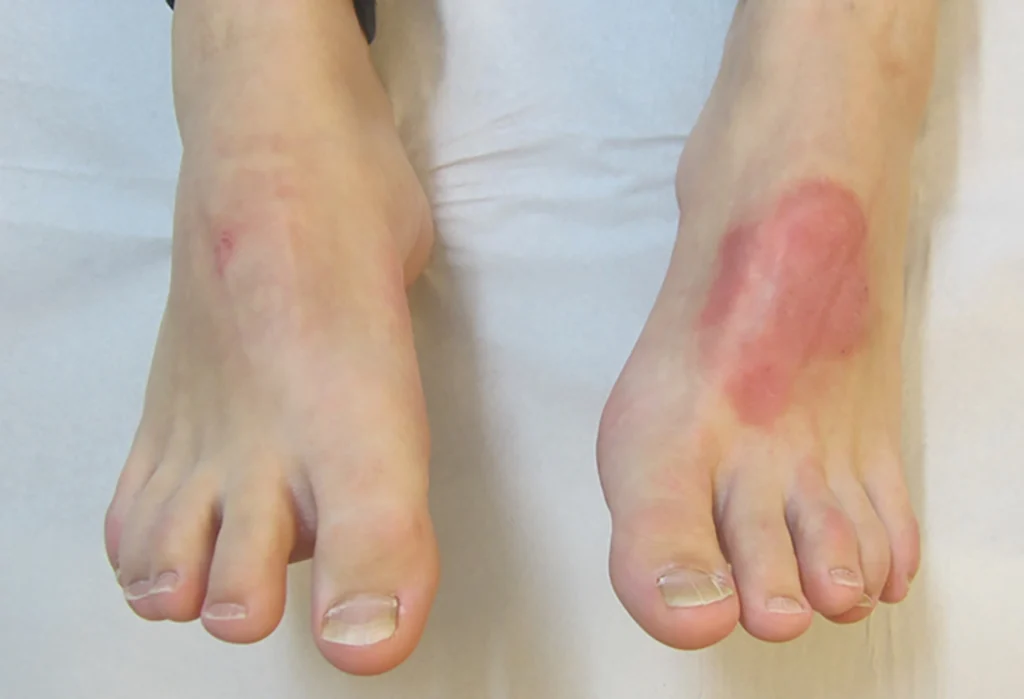Share Post
Eczema-Asthma Connection
Eczema-Asthma Connection: Eczema and asthma are linked because they belong to a category of allergic illnesses called atopic disorders, which are characterized by an abnormal immune reaction to different stimuli and often have a genetic component.
Eczema and asthma are two long-term conditions that affect millions of individuals worldwide. Despite the fact that they appear to be separate conditions, there is emerging evidence that they may be connected. In this blog post, we’ll look at the connection between eczema and asthma, as well as what you should know about managing both conditions.
What exactly is Eczema?
Eczema, also known as atopic dermatitis, is a skin ailment that causes red, itchy, and irritated skin. It frequently begins in childhood and can last throughout maturity. Eczema can affect any region of the body, although the hands, feet, arms, and legs are the most usually affected. Although the actual etiology of eczema is unknown, genetics, environmental factors, and an overactive immune system are likely to be involved.

What exactly is Asthma?
Asthma is a chronic respiratory disorder that affects the lungs’ airways. It causes inflammation and constriction of the airways, making breathing difficult. Wheezing, coughing, shortness of breath, and chest tightness are all symptoms of asthma. A range of variables, including allergies, exercise, stress, and infections, can cause asthma.
Eczema’s Relationship with Asthma
Eczema and asthma have a proven strong connection, according to research. Asthma is more prone to develop in eczema sufferers and vice versa. In actuality, asthma or other allergies affect up to 70% of persons who have eczema. The immune system is assumed to be involved in this link. Due to their overactive immune systems, those who suffer from eczema are more likely to develop allergies and asthma.
Managing both eczema and asthma is crucial if you want to avoid flare-ups and enhance your quality of life. Here are some suggestions for treating asthma and eczema:
- Avoid triggers: It’s critical to recognize and stay away from triggers that can exacerbate symptoms of both asthma and eczema. Allergens (such as pollen, pet dander, or dust mites), irritants (like harsh soaps or chemicals), particular meals, stress, and environmental variables are examples of common triggers. Reducing your exposure to triggers can aid in reducing flare-ups.
- Maintain proper skincare: For skin that is prone to eczema, use gentle skincare products. To keep the skin hydrated and avoid dryness, use moderate, fragrance-free soaps and moisturizers. Avoid taking long baths or using very hot water because these activities might deplete the skin’s natural oils.
- Utilize medicine as directed by your physician to control symptoms and stop flare-ups.
- Take regular baths or showers and use mild, fragrance-free soap to maintain healthy hygiene.
- Using a humidifier will provide moisture to the air and stop it from becoming dry.
- Consult with healthcare professionals: To create a customized treatment plan for both problems, start by speaking with your healthcare practitioner, including a dermatologist or an allergist. They can offer precise diagnoses, recommend suitable medications, and advise on how to successfully manage symptoms.
Eczema is a common skin inflammatory disorder. Atopic dermatitis is the most frequent kind. Eczema is most frequent among youngsters, but the vast majority of them will outgrow it by puberty. Eczema can be painful and can range in severity. It can manifest differently depending on the age of the person. The signs may be more difficult to detect in those with darker skin tones. Although there is no cure, patients can use home remedies, moisturizers, pharmaceuticals, and lifestyle modifications to manage and prevent eczema flare-ups.
If you’re experiencing pain and discomfort from Eczema-Asthma, consider speaking to our top-rated Podiatrist or Visit Feldman & Leavitt Foot and Ankle Specialists about the best treatment plan for your needs.
As a general rule, Foot Ulcers procedures are performed on an outpatient basis in an Alberta Health Services (AHS) approved Surgical Center or in a Hospital. Surgical procedural costs are covered by AHS or the patient may opt for private surgery to avoid a waiting time. A visit to Feldman Foot And Ankle Specialists will CLEARLY define all available patient options.

